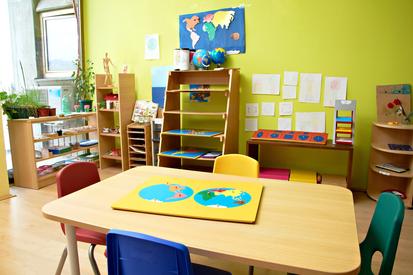Montessori vs. Traditional
The early years of human development (up to about the age of 6), establishes the basic architecture and function of the brain. This early period of development affects the next stage of human development as well as the later stages. We now better understand, through developmental neurobiology, how experience in early life affects these different stages of development. Poor early development affects health (physical and mental), behavior and learning in later life.
Research has shown the best predictor of future success includes a positive sense of self-esteem. Montessori programs, based on self-directed, non-competitive activities, help children develop strong self-images and the confidence to face challenges with optimism.
The Montessori education is not a system of teaching. Instead it is a method of helping children in the total development of their personality during their fundamental period of growth. The child must have freedom in order to develop his/her personality to the fullest. This freedom is achieved through work, order and self discipline.
Montessori children are unusually adaptable when compared to child attending regular daycare or childcare centers. They have learned to work independently and in groups and develop the skills necessary to effectively collaborate with all types of people. Since they’ve been encouraged to make decisions from an early age, these children are problem-solvers who can make appropriate choices and manage their time well as opposed to traditional structured day care programs where the teacher is continually "managing" the classroom or telling the child what to work on or correcting the child's work.
Montessori

- Emphasis on cognitive structures and social development
- Teacher has unobtrusive role in classroom activity allowing child to actively participate in the learning process
- Self-discipline is encouraged
- Classrooms are prepared in advance based on observations of the students individual needs
- Lessons are hands-on and active. Students discover information for themselves
- Montessori curricula expand in response to the student's needs
- Montessorians understand that the child's self-esteem comes from an internal sense of pride of their own accomplishments
Traditional

- Emphasis on role knowledge and social development
- Teacher has active role in classroom activity; child is a passive participant in the learning process
- Teacher acts as primary enforcer of external discipline
- Classrooms are based on teacher-centered lessons of activities with students sitting in assigned seats
- Lessens are often orated to students who listen passively, memorize, and take tests
- Traditional curricula are predetermined without regard to student needs
- In traditional classrooms, self-esteem is thought to come from external judgement and validation
